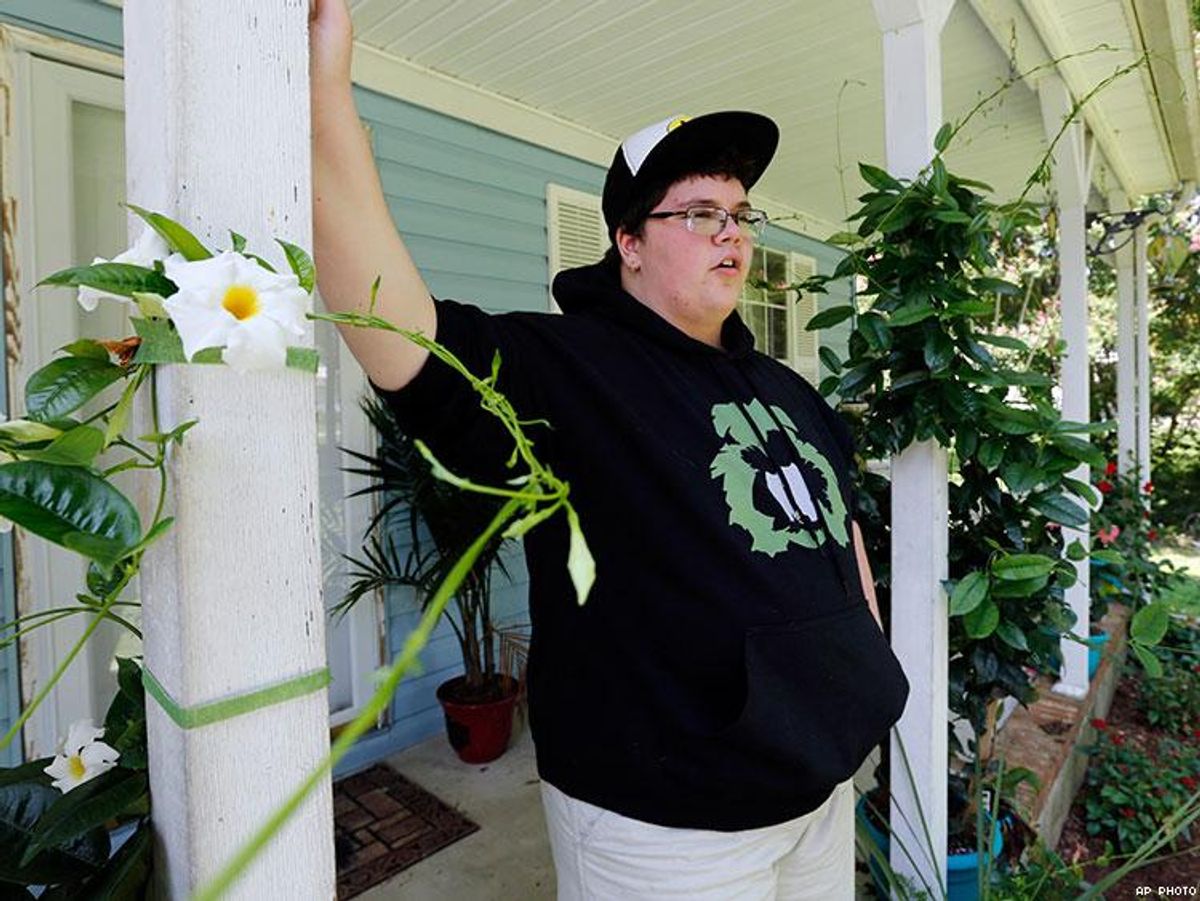The Fourth Circuit Court of Appeals today denied a Virginia school board's request to reconsider an April ruling that determined a transgender student must be granted equal access to the boys' bathroom and locker room at his high school.
The U.S. Circuit Court of Appeals for the Fourth Circuit today denied a request from the Gloucester County School Board to undertake an en banc review -- involving all the court's judges -- of that landmark April ruling. The decision, by a three-judge panel of the court, marked the first time a federal appeals court had affirmed that Title IX of the Education Amendments of 1972, which prohibits discrimination on the basis of sex, extends to discrimination on the basis of gender identity, as well.
The U.S. Department of Education adopted that interpretation of existing federal civil rights law in 2014, as did the federal Department of Justice, which filed a brief on behalf of Gavin Grimm, the 16-year-old Virginia student who was barred from using the boys' bathroom at his school. Even though there had been no complaints from Grimm's peers or teachers while the teen had been using the boys' bathroom, school administrators required Grimm to use a separate, private bathroom on campus, barring the transgender teen from using the same facilities his fellow male students had access to. With representation by the American Civil Liberties Union, Grimm filed suit, only to see a district court side with the school board. But the Fourth Circuit's decision overturned that ruling, and today's denial of the petition for an en banc hearing affirms the ruling in Grimm's favor.
"Now that the Fourth Circuit's decision is final, I hope my school board will finally do the right thing and let me go back to using the boys' restroom again," said Grimm in a statement provided by the American Civil Liberties Union. "Transgender kids should not have to sue their own school boards just for the ability to use the same restrooms as everyone else."
The Gloucester County School Board could still appeal the Fourth Circuit's ruling to the U.S. Supreme Court, where, if the case were accepted, a decision could have sweeping implications for trans students nationwide. Such a turn of events would be particularly relevant to North Carolina, where state leaders and top government officials are engaged in a pitched legal battle over equal access for transgender people brought on by the anti-LGBT law known as House Bill 2. The Fourth Circuit holds jurisdiction over Virginia, North Carolina, South Carolina, West Virginia, and Maryland, meaning all rulings finalized in the circuit are legally binding in all five states.
While each case brought to the federal appellate circuits is initially heard and decided by a three-judge panel, either party to the suit can request an en banc appeal. If a majority of the judges favor hearing the case, the en banc review is granted. However, none of the 15 judges in the circuit voted to rehear the case out of Virginia, according to the ACLU.













































































